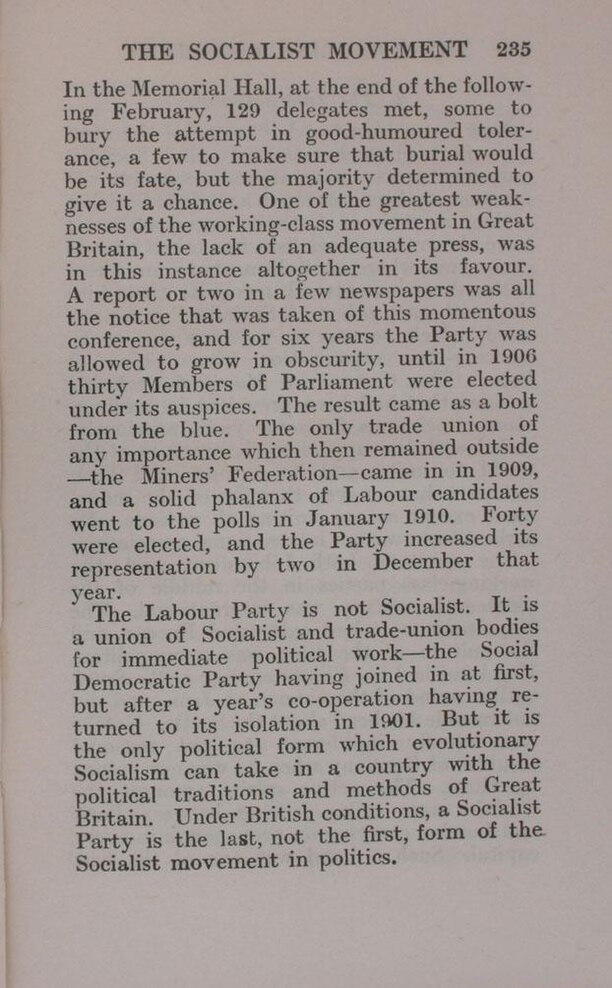In the Memorial Hall, at the end of the following February, 129 delegates met, some to bury the attempt in good-humoured tolerance, a few to make sure that burial would be its fate, but the majority determined to give it a chance. One of the greatest weaknesses of the working-class movement in Great Britain, the lack of an adequate press, was in this instance altogether in its favour. A report or two in a few newspapers was all the notice that was taken of this momentous conference, and for six years the Party was allowed to grow in obscurity, until in 1906 thirty Members of Parliament were elected under its auspices. The result came as a bolt from the blue. The only trade union of any importance which then remained outside—the Miners' Federation—came in in 1909, and a solid phalanx of Labour candidates went to the polls in January 1910. Forty were elected, and the Party increased its representation by two in December that year.
The Labour Party is not Socialist. It is a union of Socialist and trade-union bodies for immediate political work—the Social Democratic Party having joined in at first, but after a year's co-operation having returned to its isolation in 1901. But it is the only political form which evolutionary Socialism can take in a country with the political traditions and methods of Great Britain. Under British conditions, a Socialist Party is the last, not the first, form of the Socialist movement in politics.
